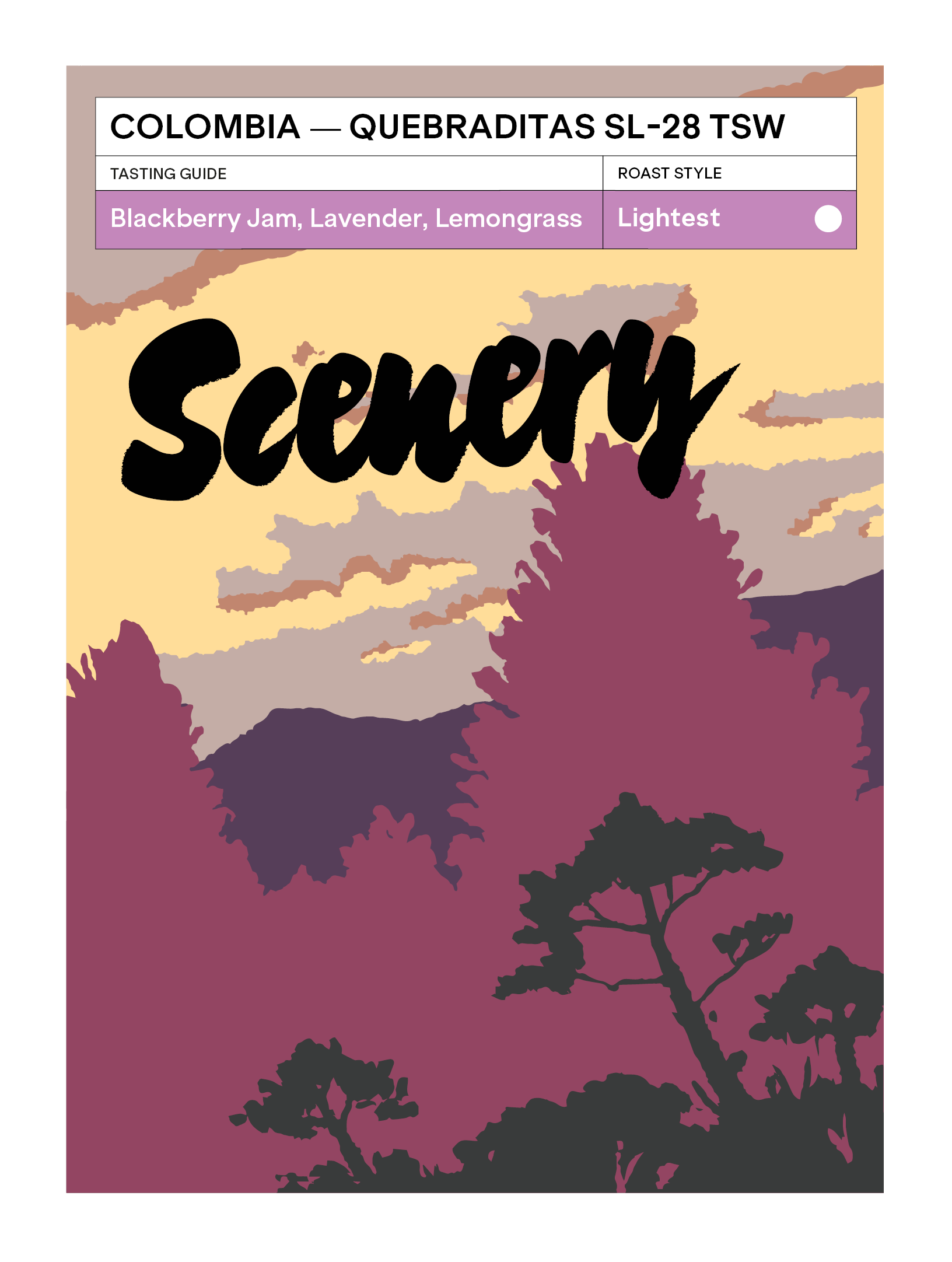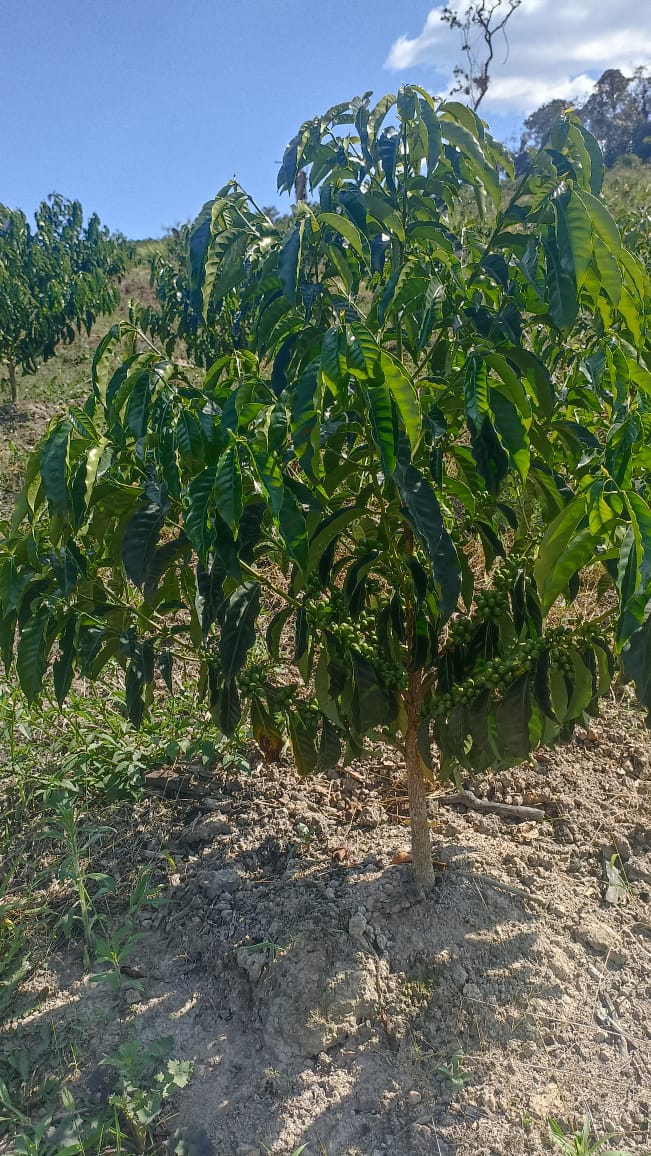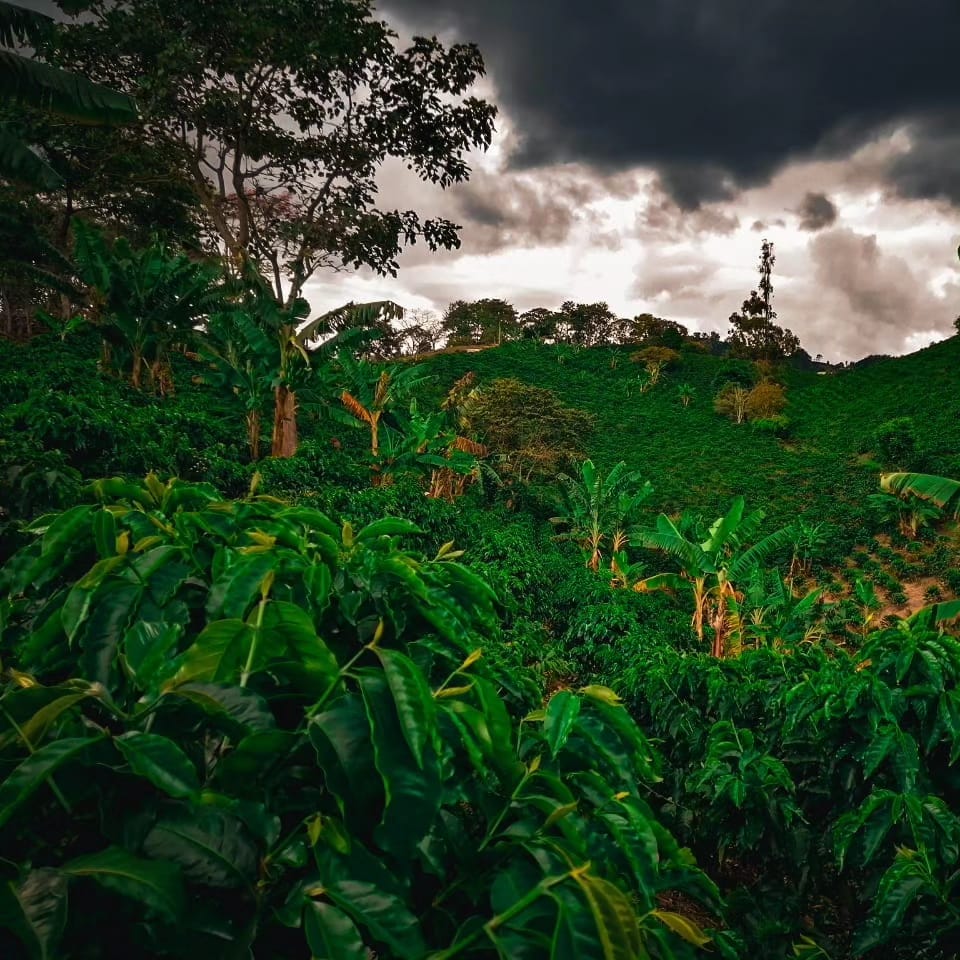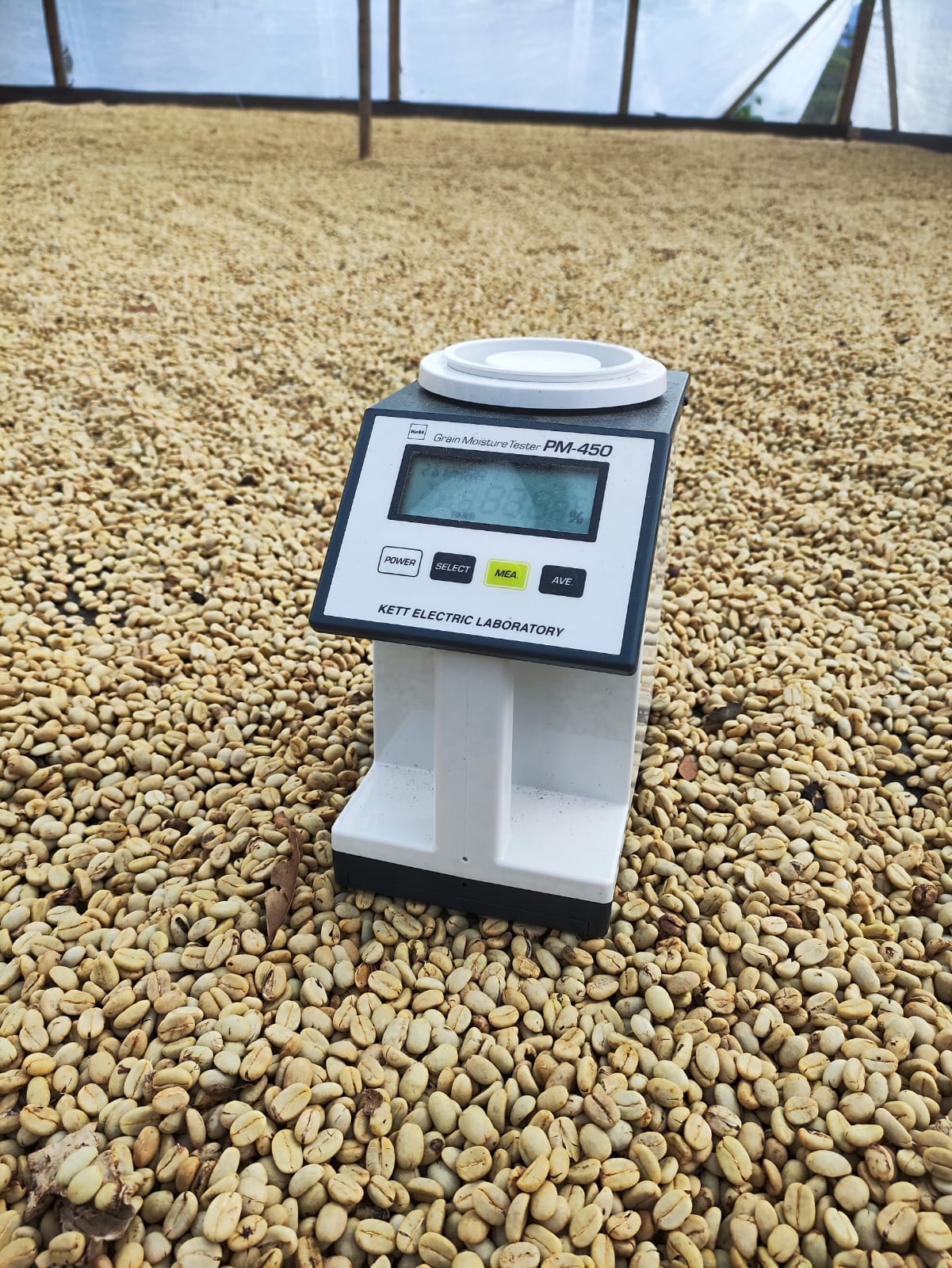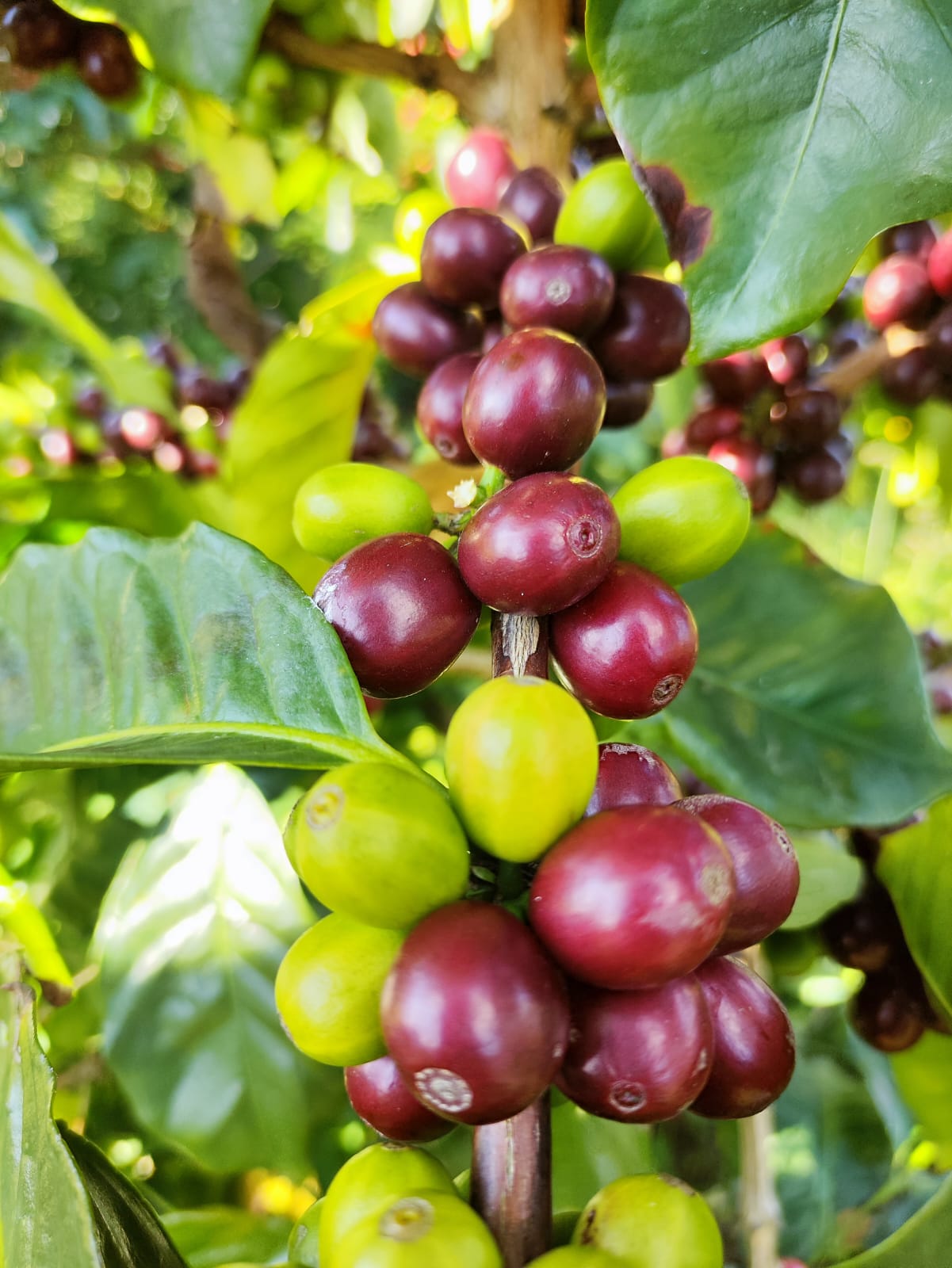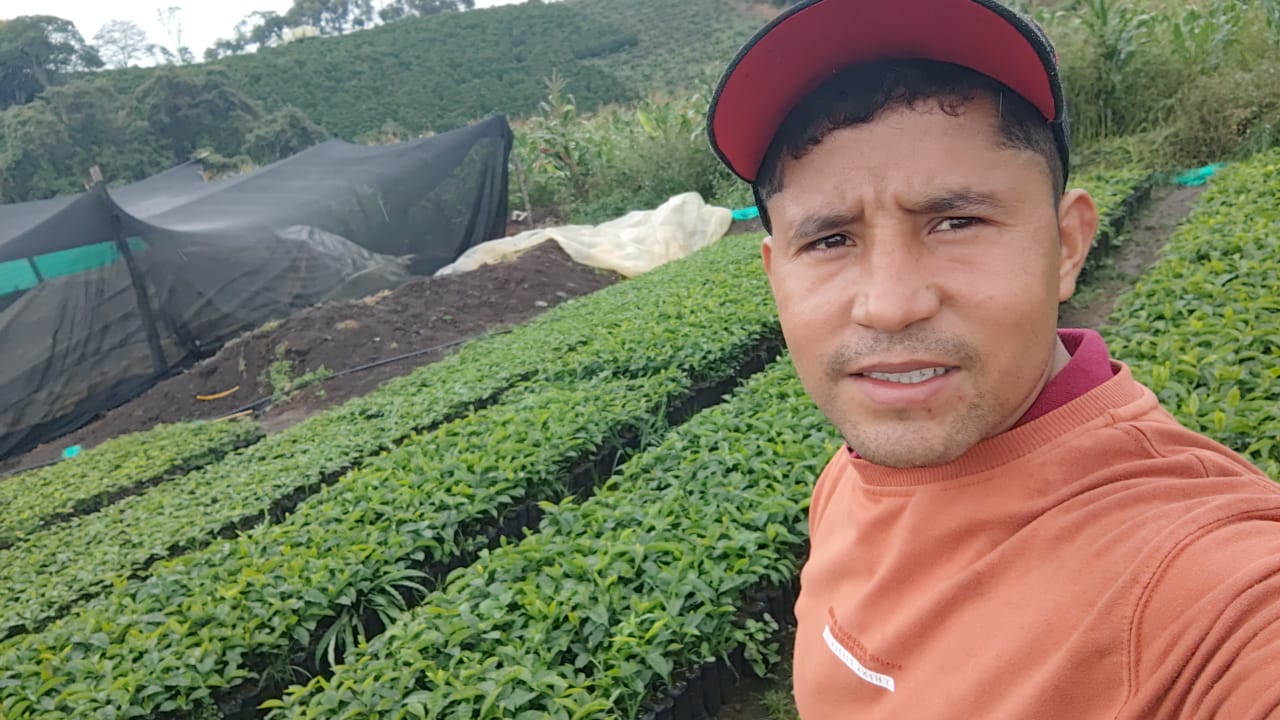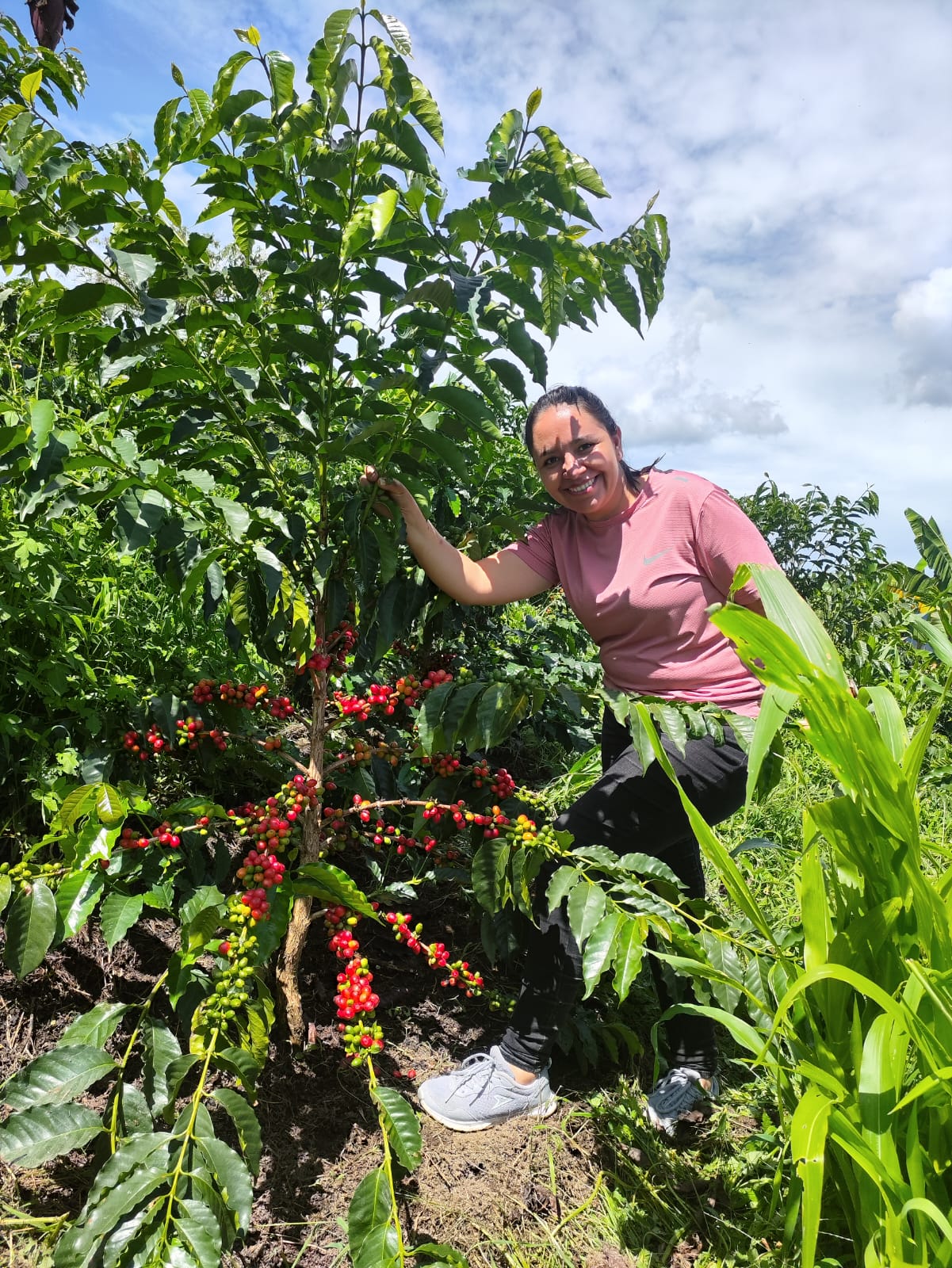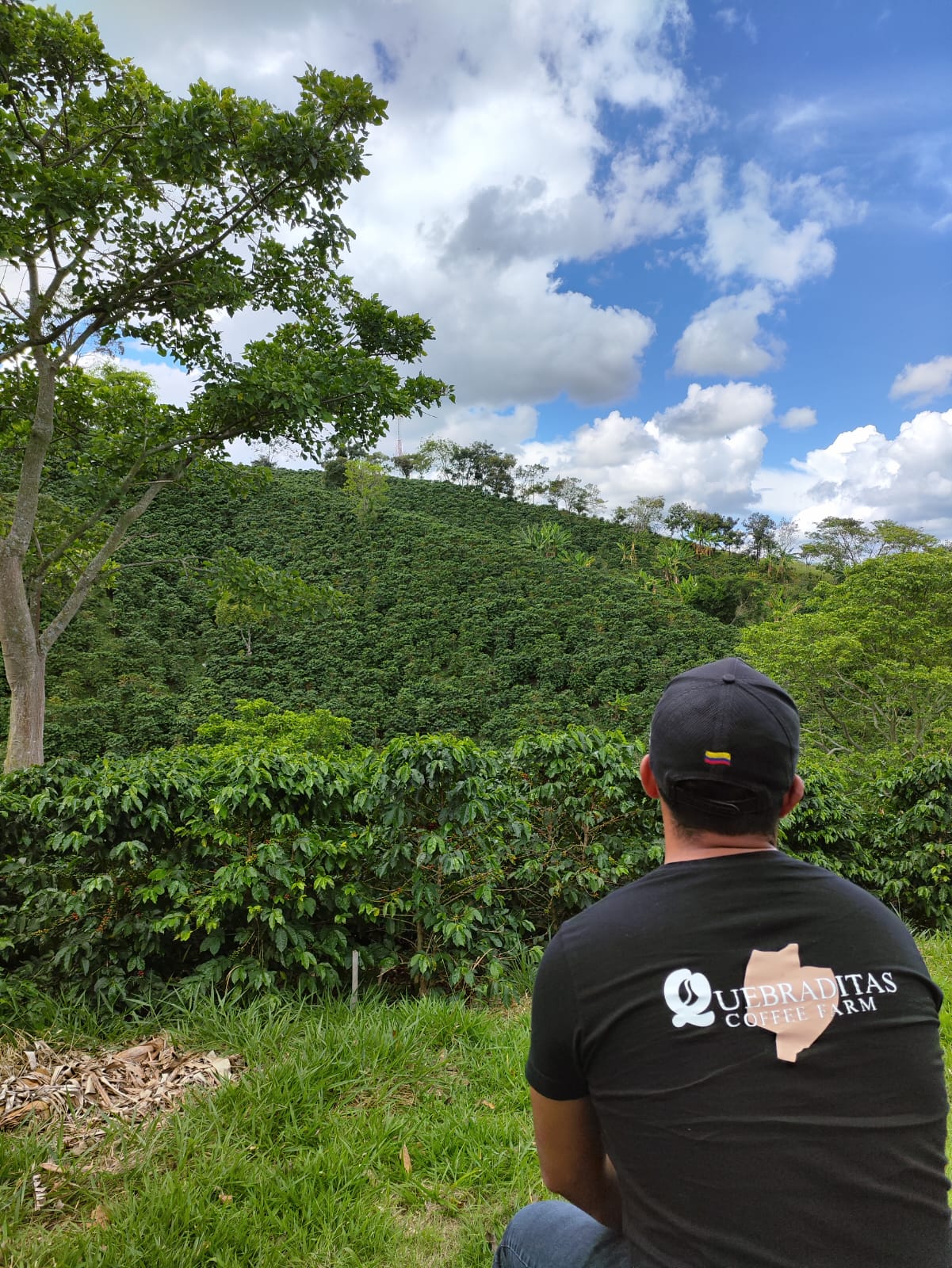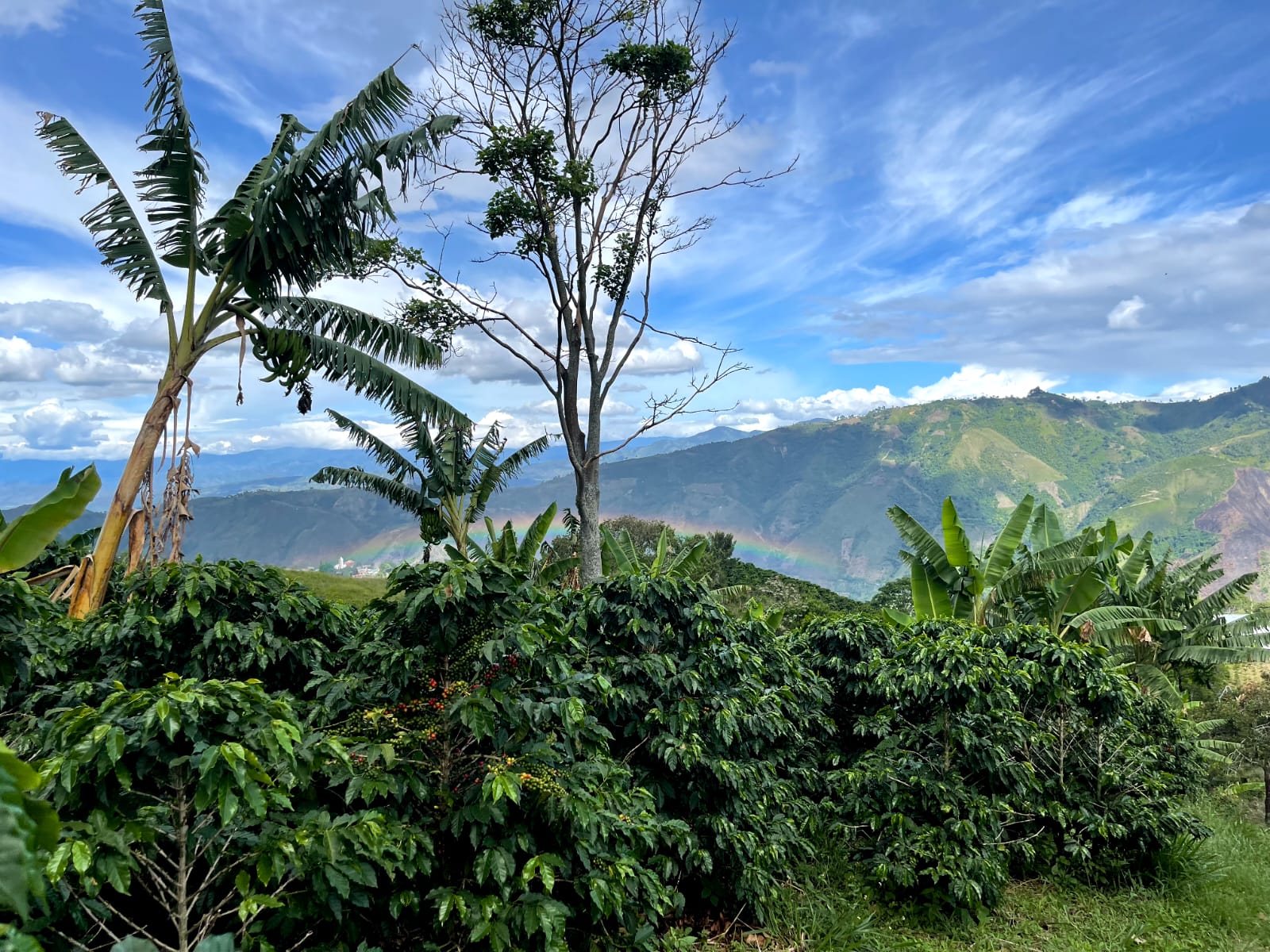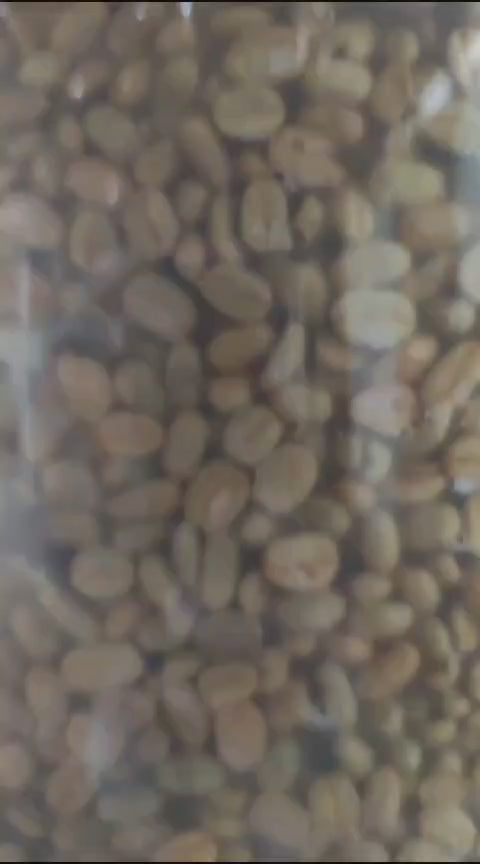
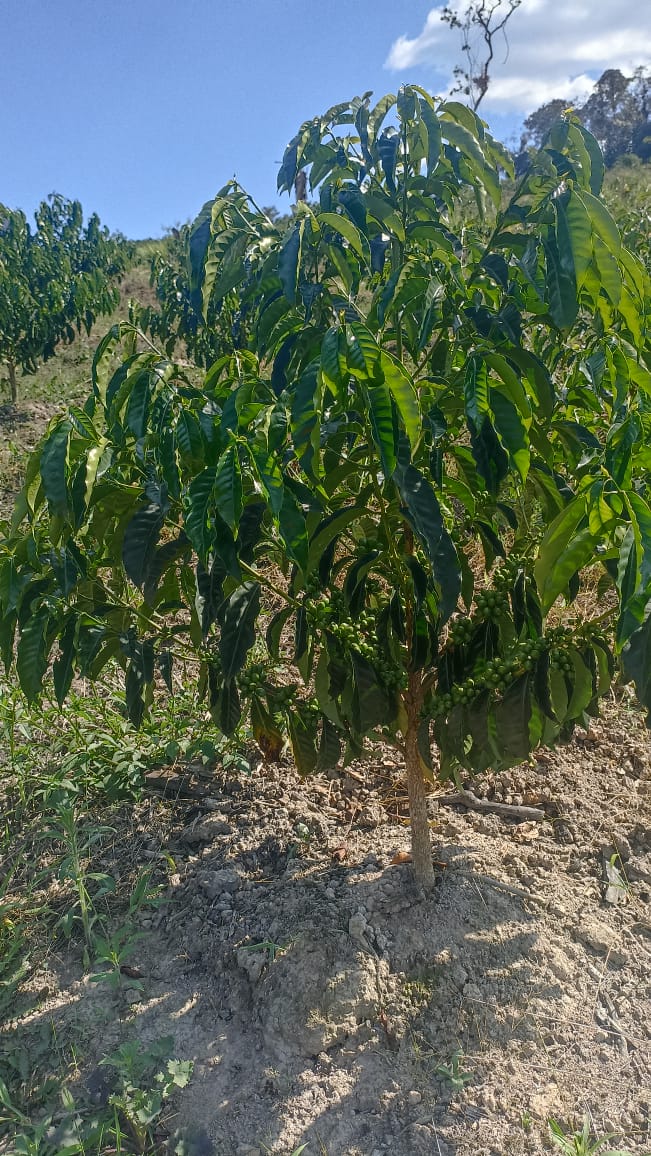
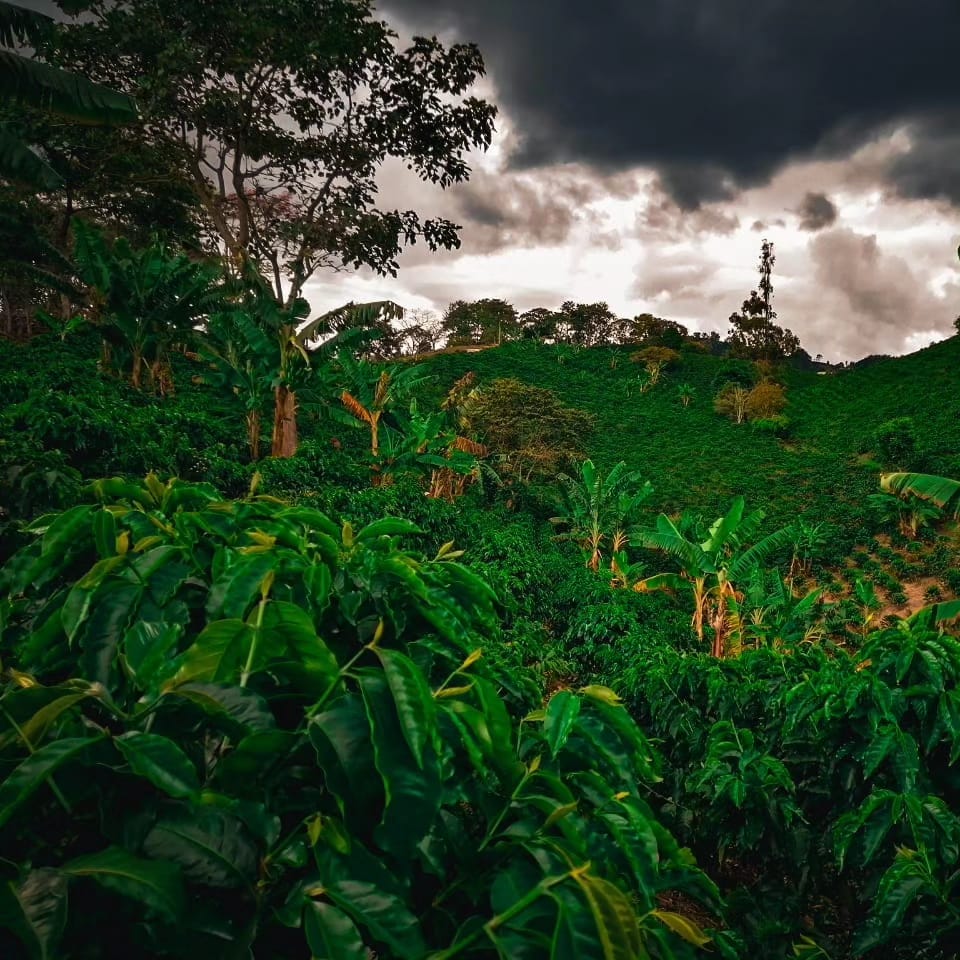
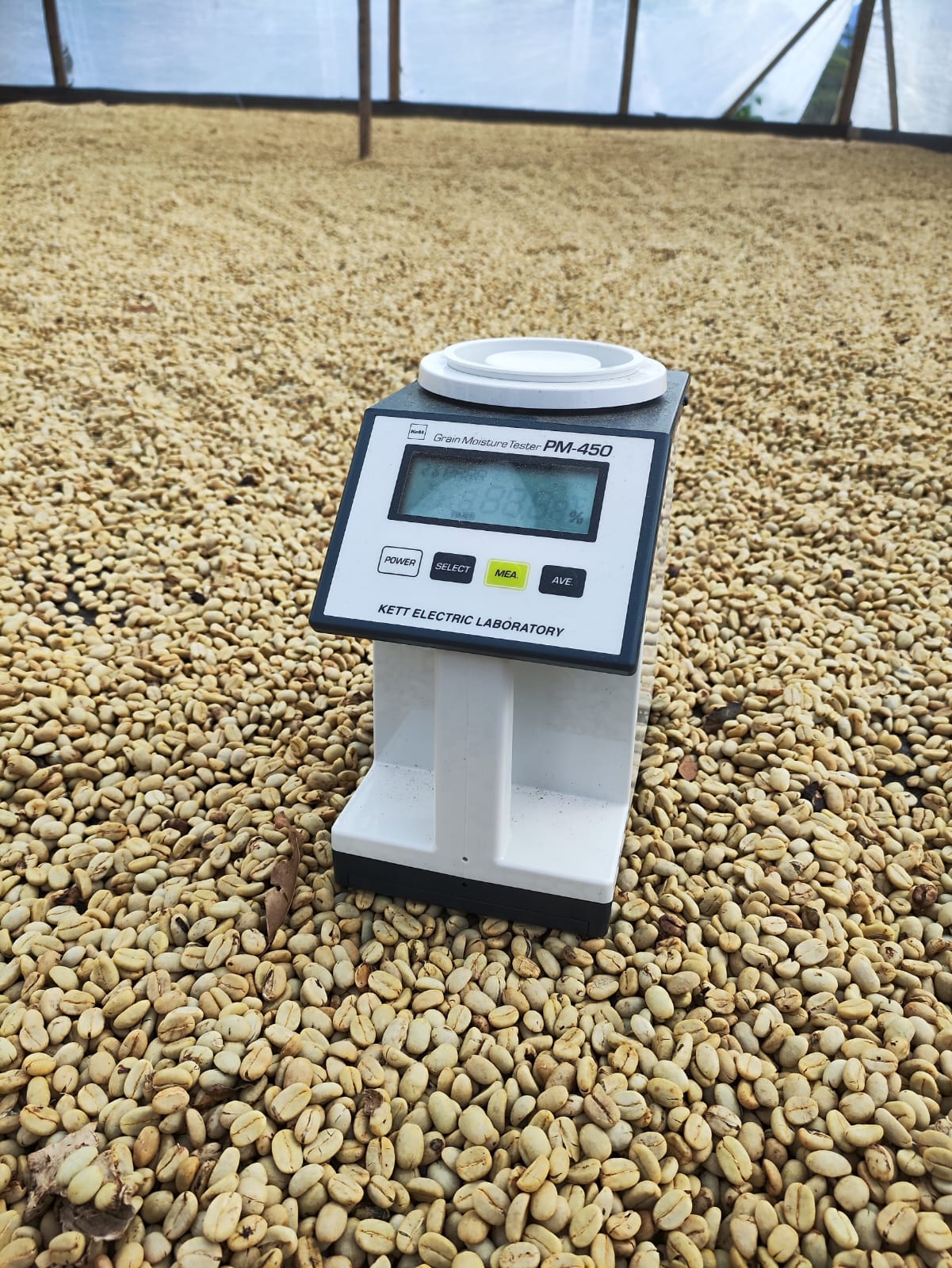
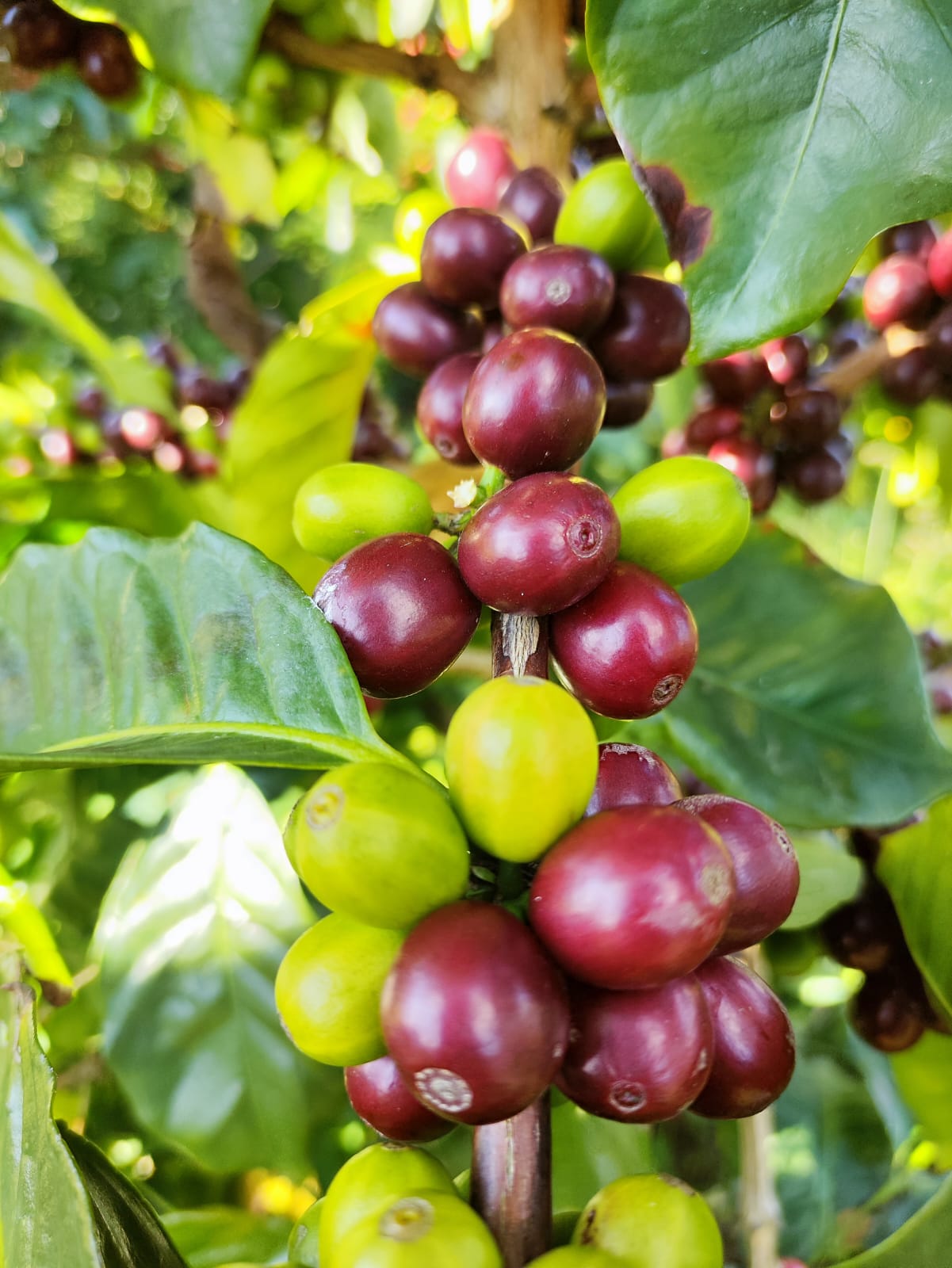
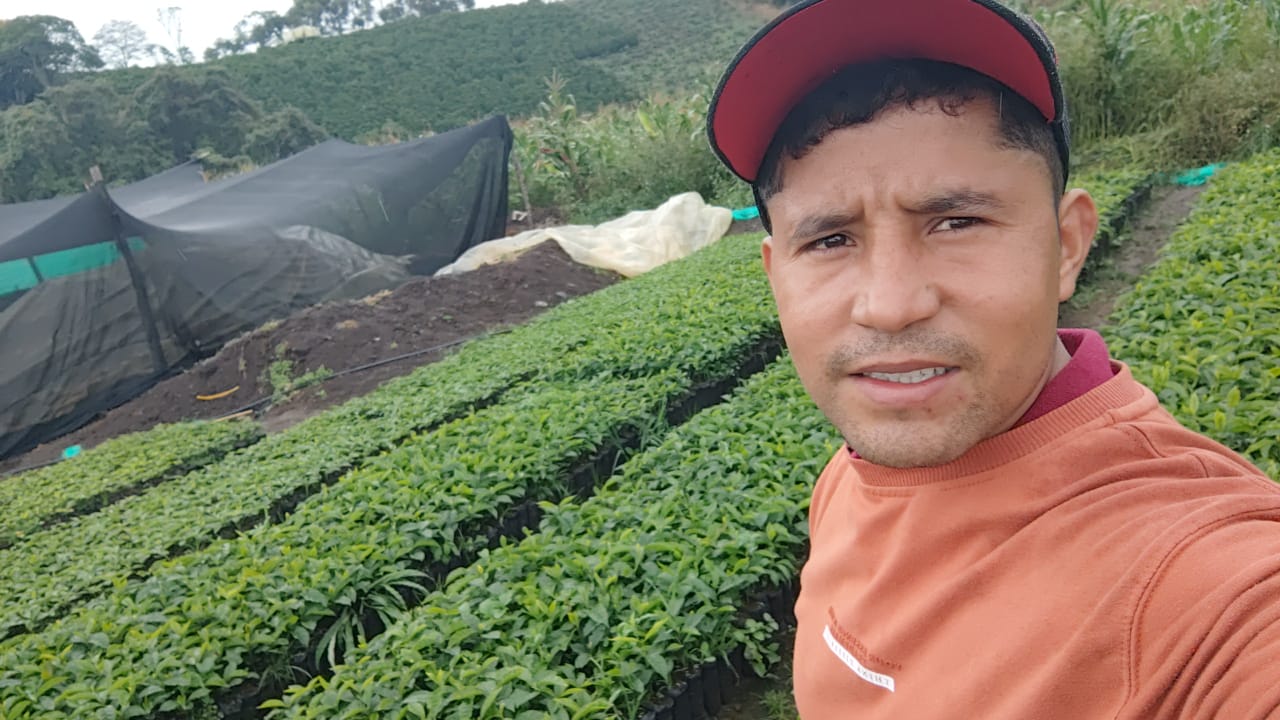
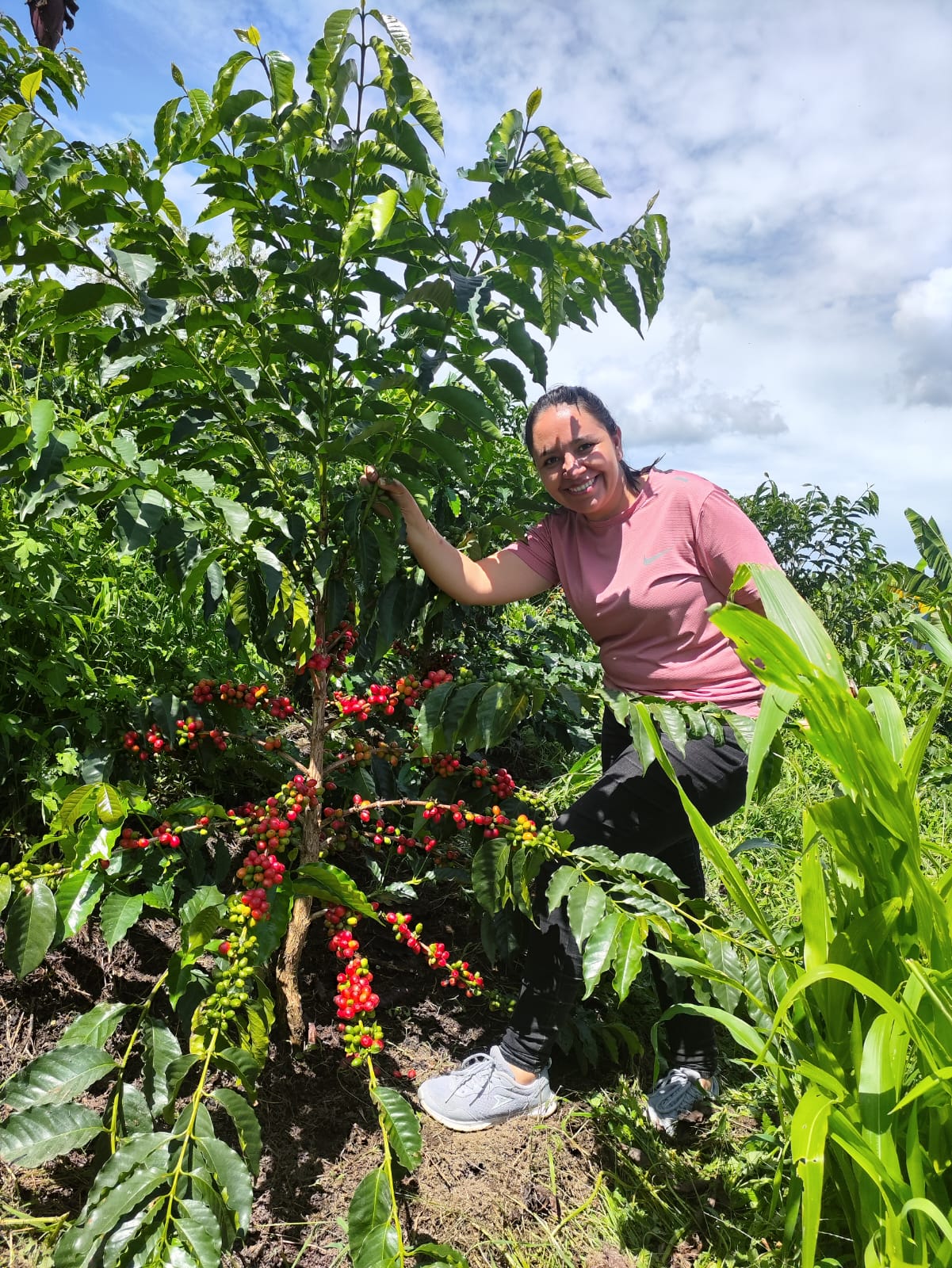
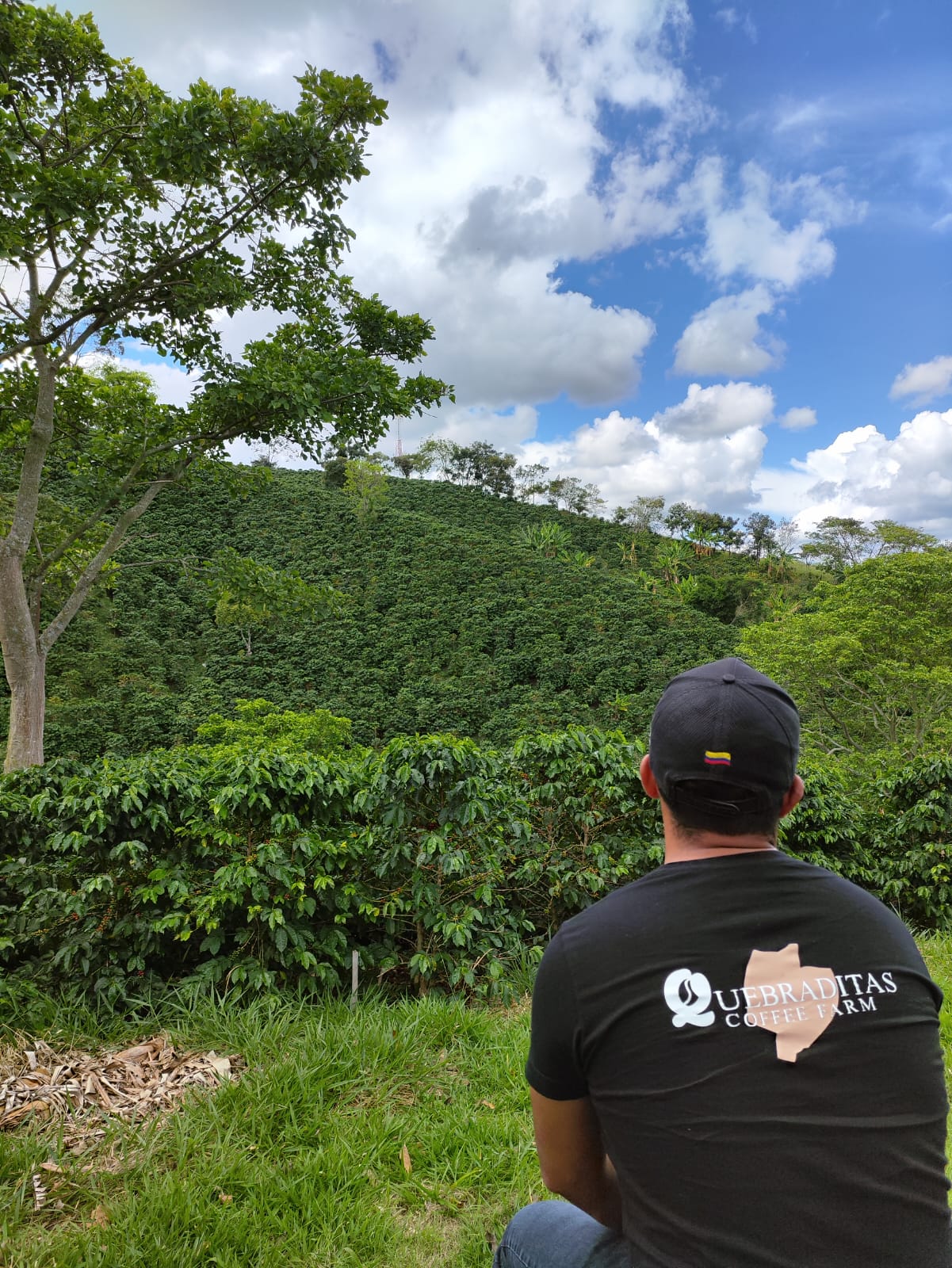
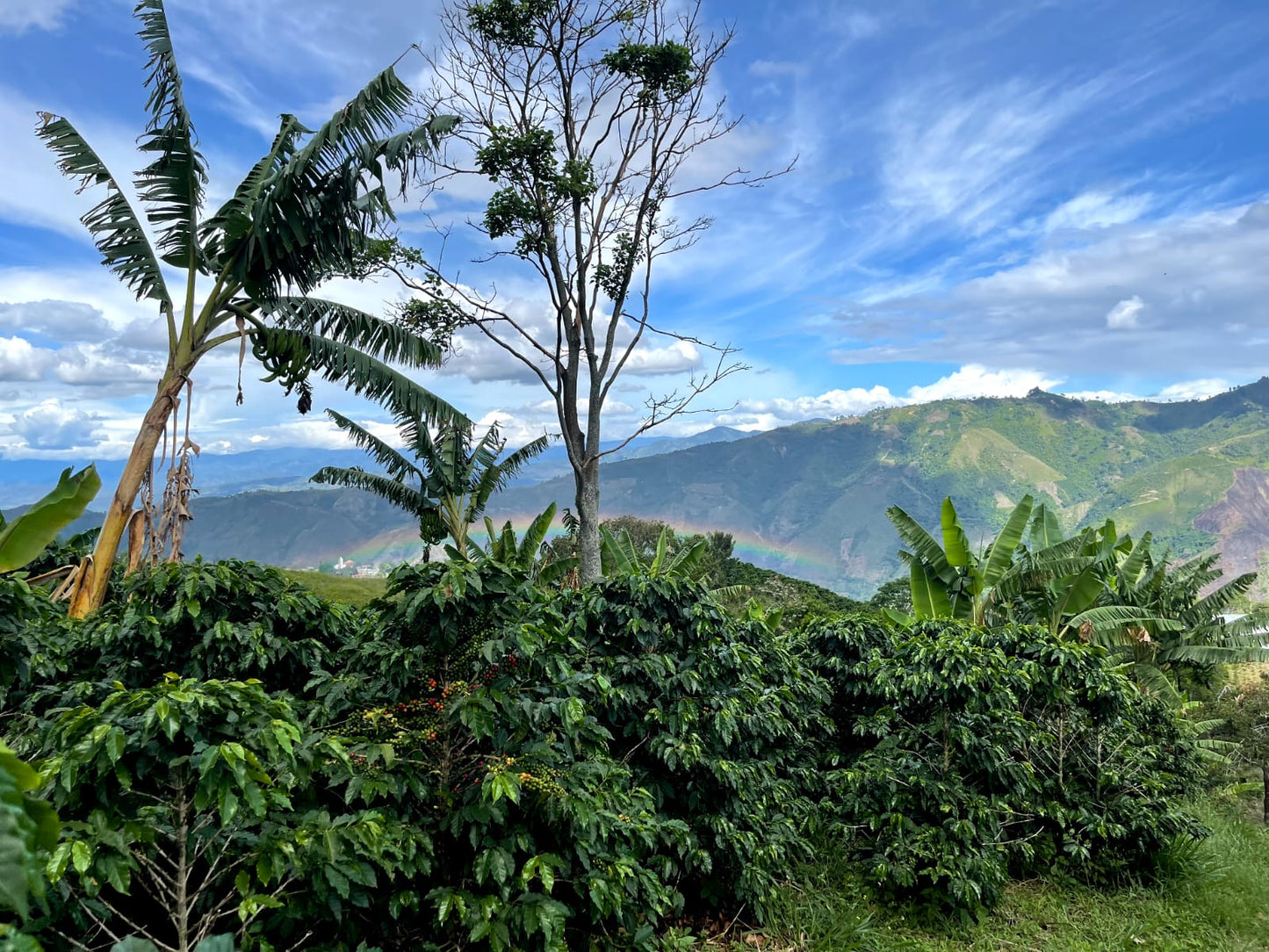
Brew Guide:
Best Brewed with: Filter
Lightest Roaster Influence: Much cleaner than the advanced naturals, the thermal shock washed coffees respond well to super fast roasts but with a touch more development time. As always, we try and roast these coffees for maximum aromatics and acidity, as they've oodles of natural sweetness
Best Rested: 3-4 weeks
Filter: 60g/L & 96°C, with rest we like to move down to 58g/L & 92°C
Espresso: Turbo shots + 3 weeks rest. 18g/48g+ & 20s - we prefer when this coffee is more dilute
We’re tasting: Super floral aromatics of lavender and mint flowers. In the cup it's ripe blackberry, muscat grape, blackcurrant leaf and chamomile, but overall very sweet (almost like foam sweets) alongside juicy acidity. There's a distinct herbal-citrus note like lemongrass, but which cools to a refreshing minty lemon balm. Super interesting and very tasty
Traceability
Country of Origin: |
Colombia |
Region: |
Oporapa, Huila |
Producer: |
Edinson Argote & Luz Ángela Rojas |
Farm: |
Quebraditas |
Variety: |
SL-28 |
Elevation: |
1850 MASL |
Process: |
Thermal Shock / Yeast Inoculated / Washed: Ripe cherries (minimum 90%) picked and floated to remove any underripes, held in cherry for a 24 hr fermentation in an anoxic environment. Cherries are then pulped, with a 16 hr dry parchment fermentation before washing with 50°C+ water. Parchment then inoculated with a specific yeast for a further 76hr aerobic ferment, with a 5°C fermentation crash cold wash.
|
Import Partner: |
MiCafe |
Harvest |
Crop 25/26 - Main Crop Sep-Dec, Arrived UK: 03/07/25 |
The Story
Edinson's journey from Granja Paraíso 92 to establishing Quebraditas with Luz Ángela represents something we see more frequently: producers with deep technical knowledge becoming partners rather than order-takers in the development process. But this dynamic shift doesn't eliminate the fundamental question of who carries the burden when experimentation goes wrong.
Having tried a sample of the regular "Lavado" (straight trad-washed) of Edinson's SL-28, which was very nice, but perhaps not as exceptional as his other work - we inquired whether Edinson would be up for doing a test run of TS washed? As he had specialised in the naturals for this coffee, but the high acidity we find in the TS lots we thought would bang with the raw green quality.
In doing this, we were entering territory that highlights both the best and most problematic aspects of modern coffee buying. The request itself represents a power dynamic: a roaster identifying what they believe will work better commercially, then asking a producer to dedicate time, resources, and cherry to an unproven concept.
Edinson's response that he was already experimenting with TS washed process on this cultivar speaks to his position as what we might call a "superstar producer": someone with enough market leverage, technical knowledge, and financial cushioning to pursue his own development path. But this scenario exposes a critical principle that we believe should apply universally: if you request it, you buy it, regardless of outcome. We have a policy that any time we proffer a request for custom processing or lots, there should be a minimum agreed price floor that we will pay regardless of outcome that makes it de-risked and worth the time for the producer, and a quality based top price if it works out.
The risk equation in custom roaster processing requests is rarely equal. Producers invest cherry, labour, time, and facility resources based on a buyer's theory about market reception. When that theory proves wrong, or when the processing doesn't achieve expected results, the traditional dynamic has been for buyers to walk away, leaving producers holding expensive lessons. This dynamic becomes particularly problematic with newer producers who lack the market relationships to absorb failed experiments.
Our commitment when requesting specific processing extends beyond just purchasing the successful lots. It means accepting the coffee whether it meets our expectations or not, whether it fits our release schedule or not, and whether our initial theory about its commercial viability proves correct or not. This basic fairness when you're asking someone to modify their production based on your market assumptions is key to our entire sourcing philosophy - respecting both sides of the supply chain equally, and taking a stance against the worst elements of the coffee industry (especially arrogant neo-colonialism).
The flip side of processing requests lies in their potential value as market intelligence. When roasters approach producers with specific ideas, whether thermal shock processing, particular fermentation protocols, or even varietal suggestions, we're offering insights into what we believe will resonate with our customer base. For producers operating with limited direct market access, these requests can provide valuable data about consumer preferences, pricing trends, and competitive positioning.
Edinson's background working with Wilton gave him exposure to how different markets respond to various processing methods, but not every producer has access to this kind of market education. A roaster's request for a specific process can signal what's gaining traction commercially, what flavour profiles are commanding premiums, or where they see gaps in their current sourcing portfolio.
However, this information exchange carries significant risks when producers misinterpret individual requests as broader market truths. A single roaster's enthusiasm for carbonic maceration doesn't necessarily by default indicate industry-wide demand. Their request for a particular processing method might reflect their specific customer base, their roasting capabilities, or even a personal preference rather than genuine market opportunity.
The danger compounds when producers, eager to access premium pricing, begin restructuring their entire production around what they perceive as market signals from individual buyers. Investing in expensive fermentation equipment, dedicating significant portions of their harvest to experimental processing, or shifting away from methods they've perfected, all based on requests from a small number of buyers, can leave producers vulnerable when trends shift or when those specific relationships end.
This creates a responsibility for roasters to be transparent about their reasoning. Is a request based on broad market observation or personal preference? The most productive dynamic emerges when roasters share not just what they want, but why they want it and how they view its commercial viability.
The broader question: are we moving toward genuine collaboration, or simply dressing up extraction in more sophisticated language? Producers like Edinson, with technical education and market access, can navigate these relationships as true partners. But the industry's embrace of experimental processing creates pressure on producers with fewer resources to chase increasingly complex methods to remain competitive.
Edinson's approach of running small trial batches represents the smart response: testing concepts without betting the farm on individual buyer preferences. When we commit to purchasing experimental lots regardless of outcome, we're participating in a different model that acknowledges the shared nature of innovation and the unequal distribution of risk in coffee trade. The most successful relationships have market intelligence flowing both ways: roasters sharing consumer insights, producers sharing processing discoveries.
Quebraditas
Orphaned and working from age 11, Edinson Argote found coffee after his military service at a Colombian buying station. He mastered quality control and fermentation techniques while running QC at a major Piendamó farm, then launched Quebraditas - an 8-hectare farm planted with exotic varieties. His girlfriend Luz Angela's family already had a traditional 10-hectare farm called Chorro Alto. While Quebraditas is still young, Edinson's processing knowledge has proven vital in his partnership with El Jaragual, helping establish it as speciality coffee's newest standout producer.
Colombia's position as the epicentre of experimental processing continues evolving — knowledge spreading beyond initial pioneers into a wider network of skilled producers. We're seeing more variety offered in these high technical intervention lots, and even the spread outside of Colombia (We've seen in the previous few months producers in Peru, India and Ethiopia start to deploy these techniques).
We were stoked to be on the first wave of roasters offering coffee from Edinson and Luz - his Gesha was a standout of the 2024 offer. Meeting Edinson and Luz Angela at Manchester's Altogether Brewing event was a brilliant moment of connection and we're stoked to keep promoting their work.
- Choosing a selection results in a full page refresh.
- Opens in a new window.

